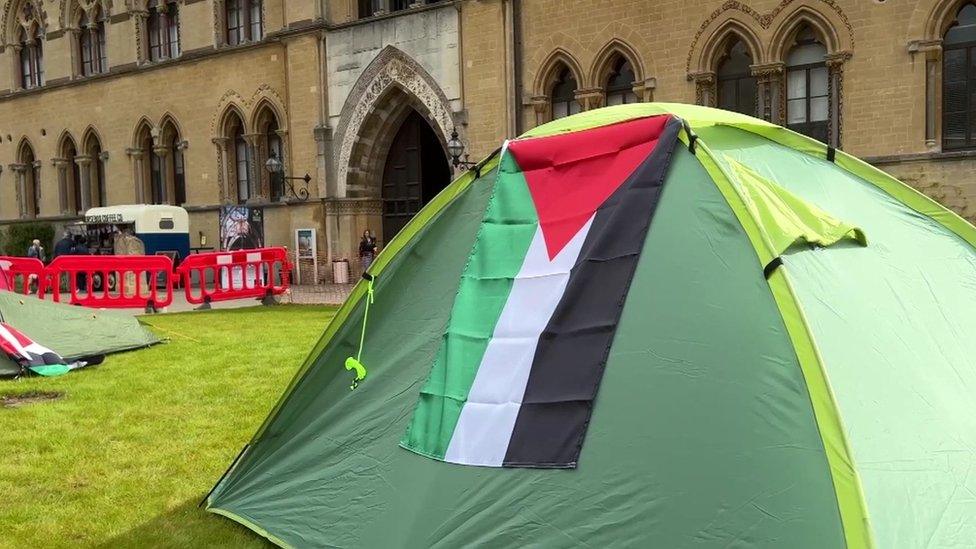Gaza protesters end occupation of university land
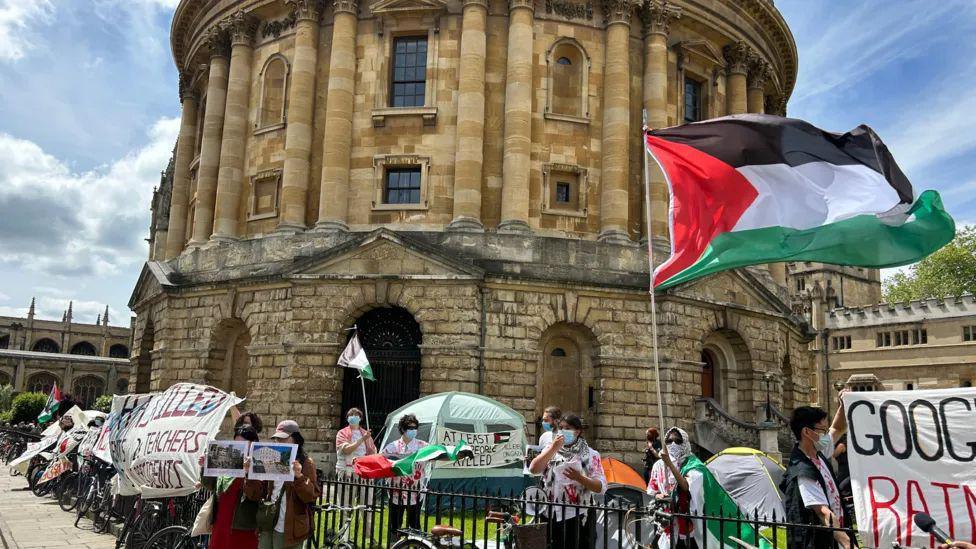
Pro-Palestinian protesters were camped at the Radcliffe Camera
- Published
Pro-Palestine protesters in Oxford have said they have disbanded a second camp which they set up on university land.
Oxford Action for Palestine (OA4P) said it had left Radcliffe Camera, a university building, in the face of legal action.
The group, which has called for the university to cut financial ties with Israel, said the departure brought an end to 64 days of encampments, which began outside the Museum of Natural History on 6 May.
The University of Oxford said it was committed to meeting with campaigners to understand their concerns.
The two protests were designed to draw attention to "the university's complicity in Israel's genocide in Gaza", OA4P said.
The group said it had decided to pursue other forms of action in future.
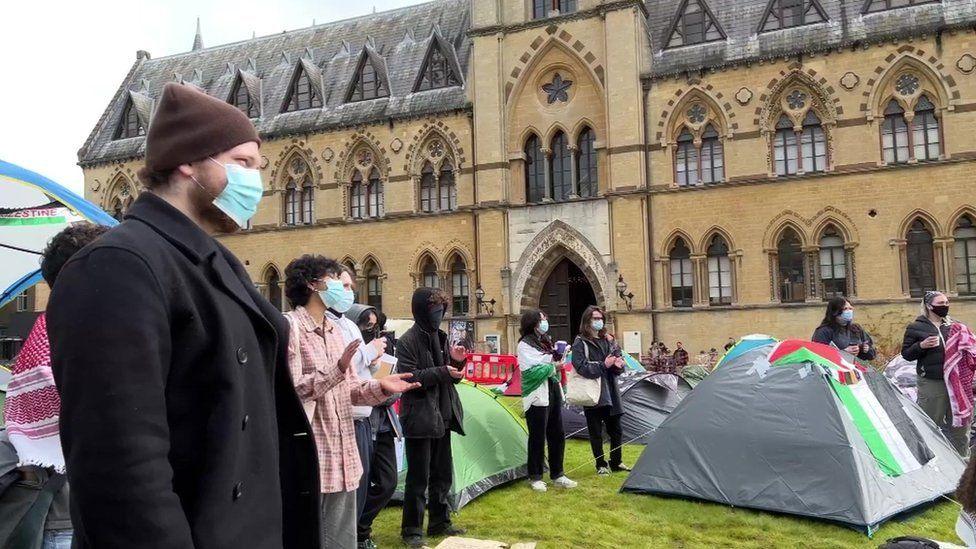
The first camp was set up outside the Museum of Natural History on 6 May
Workers with tractors and other vehicles dismantled the camp outside the Museum of Natural History in June.
The area around Radcliffe Camera was abandoned in the early hours before contractors moved in and cleared the site, OA4P said.
It said protestors then picketed the university's Wellington Square administrative offices until 09:00 BST.
In a statement, it said: "In the past two months we have built a historic coalition for Palestine across Oxford.
"In the coming weeks, we will hold organising assemblies with the students, faculty, staff and Oxford residents ready to carry this movement forward."
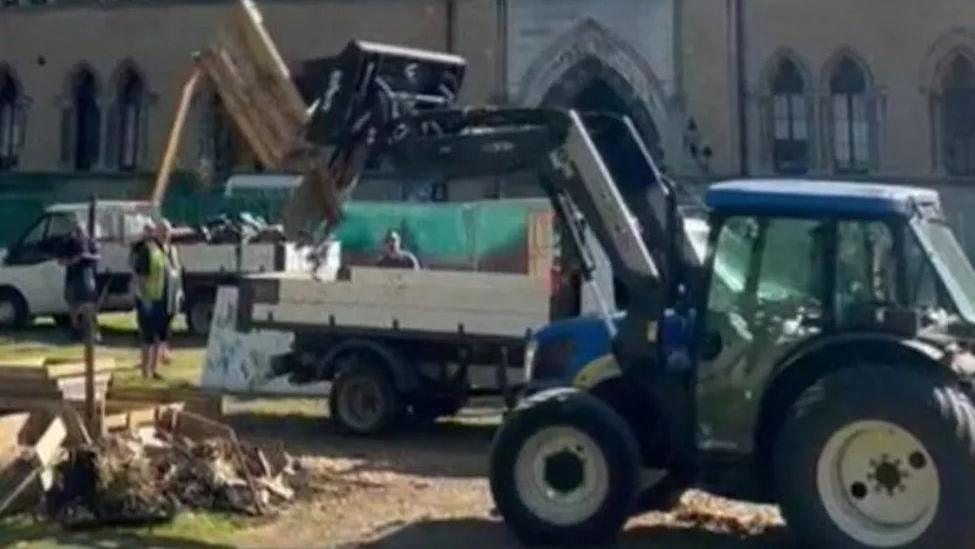
A tractor helped to dismantle the camp outside the Museum of Natural History in June
The university welcomed the disbanding of the final camp and said it was assessing the state of the lawn.
It said: "The university has consistently expressed grave concern about the horrific events unfolding in Gaza.
"We are committed to meeting with members of our community to understand and respond to their concerns, and consider how we can best contribute to rebuilding higher education in Gaza."
Israel launched a military campaign in Gaza to destroy Hamas in response to the group's cross-border attack on southern Israel on 7 October, during which about 1,200 people were killed and 252 others were taken hostage.
More than 38,153 people have been killed in Gaza since then, according to the Hamas-run health ministry.
Follow BBC South on Facebook, external, X, external, or Instagram, external. Send your story ideas to south.newsonline@bbc.co.uk, external.
Related topics
See also
- Published28 June 2024

- Published25 June 2024
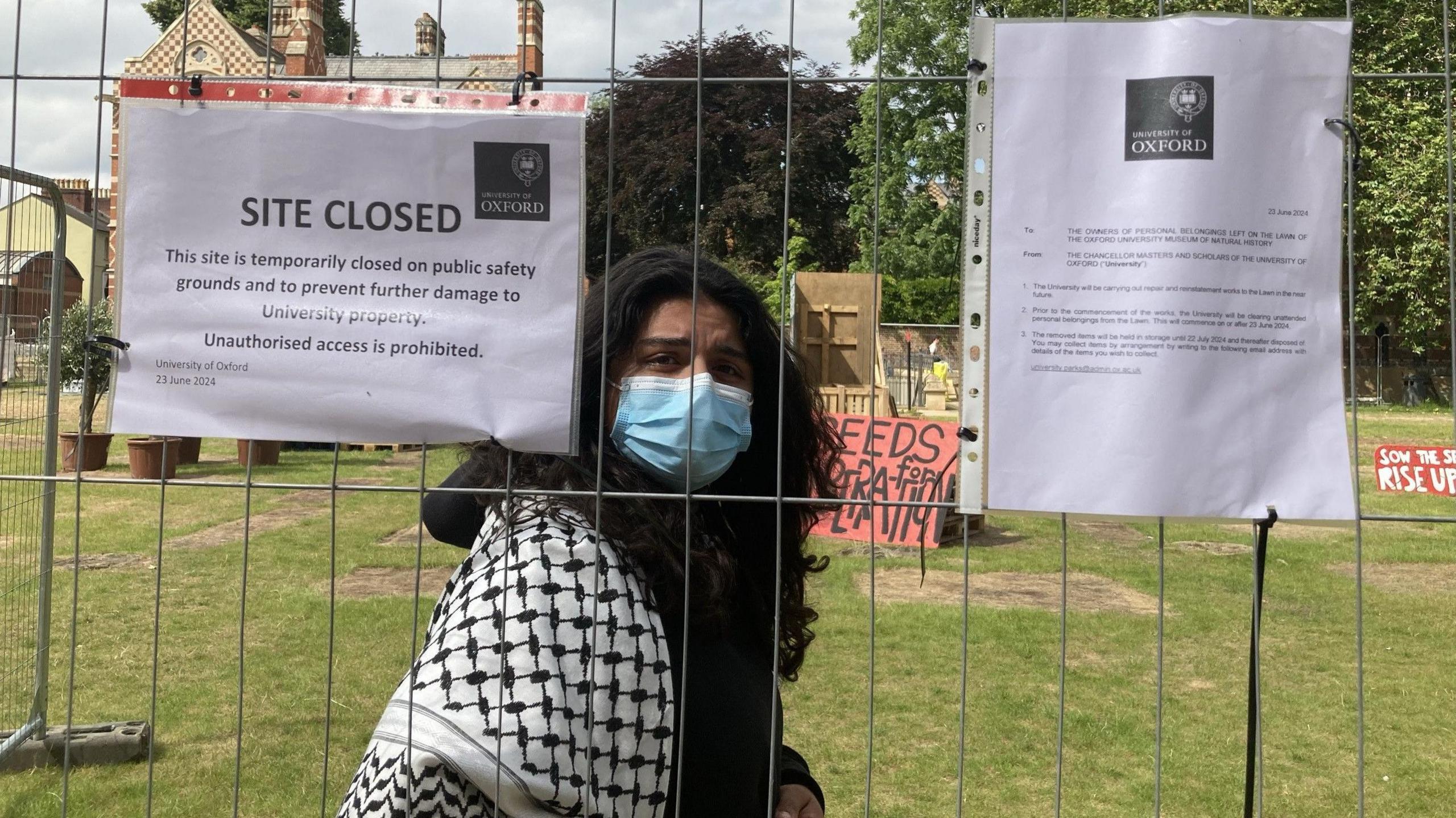
- Published6 May 2024
